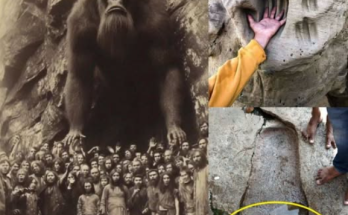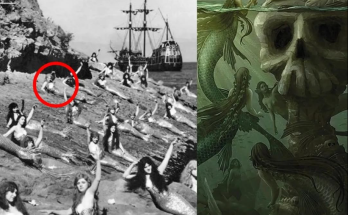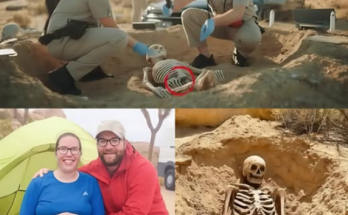The night before her life was irrevocably shattered, Amara James was told she was being sold. The words came from her own mother, low and sharp in the darkness of their small home.
“Tomorrow a car will come. You are leaving with them. Don’t resist.” There was no room for argument, no hint of motherly compassion. It was a transaction. For Amara, whose life had been a currency of endless labor and quiet suffering, this was the final, devastating payment.

To understand how a mother could sell her daughter, you must first understand the world of Amara James. In Gravemont Village, life was hard, but inside the James household, it was brutal. As the only daughter among six sons, Amara was not a child to be nurtured, but a tool to be used.
While her brothers were praised and fed, she was an afterthought, an accident, tasked with scrubbing floors before dawn and eating whatever scraps remained after her family had eaten their fill. Her father, Jonas, once laughed to neighbors, “This girl of mine, she’s worth less than a stray dog.” The words became the anthem of her childhood, a constant reminder of her place in the world.
Despite the cruelty, a small spark of hope remained within her—a belief that she was worth more, that life held something better. That spark was nearly extinguished when her eldest brother, Caleb, collapsed. The diagnosis was a brain tumor, and the surgery required to save him cost 12 million naira—a fortune far beyond their reach. Desperation turned her parents’ cold eyes to ice. Their solution was not born of love for their son, but of a final, cruel calculation regarding their daughter.
“A man in Stonebridge City will pay the full amount,” her mother, Miriam, whispered that fateful night. “But you must marry his dog.”
Amara’s world tilted. A joke, it had to be. But the stony silence in her mother’s eyes confirmed the horrifying truth. She was not a daughter to be cherished, but an asset to be liquidated for the sake of a son.
The next morning, a gleaming black sedan, a stark contrast to the dusty poverty of her village, rolled into their compound. A man in a sharp suit, Mr. Row, inspected her as if she were livestock before handing her father a thick envelope of cash. As her brothers cheered and her parents clutched the money, Amara was pushed into the car, leaving her old life behind forever.
Her destination was Blackthornne Manor, a mansion of impossible wealth and chilling silence. It was a gilded cage, and at its center was her new master: a massive white beast, a dog of terrifying size with piercing blue eyes and a diamond collar that glittered like a beautiful shackle. On Mr. Row’s command, Amara bowed, her body trembling. “He accepts you,” Mr. Row said, and with that, she was locked in a lavish chamber with iron bars on the windows.
Her only contact was a young, nervous maid named Leora, who revealed the manor’s dark secret. The beast was no mere animal. He was once a prince named Darius, cursed long ago to live in his monstrous form. And according to legend, the curse could only be broken by a girl “who has suffered more than the beast himself.” Suddenly, her lifetime of pain had a purpose, albeit one she never asked for.
That night, a deep, sorrowful voice echoed not in the room, but in her mind. Do not fear me. I am Darius. The beast could speak to her telepathically. He explained that his life was bound to an enchanted golden rose; when the last petal fell, he would remain a beast forever. His only hope was her.
Days turned into a strange new reality. Amara remained a prisoner, yet she was no longer truly alone. Darius shared the story of his arrogant past, of the sorceress who cursed him for his cruelty. His voice was filled with a regret so profound it began to chip away at her fear, replacing it with a startling pity. In turn, she found herself confiding in him, speaking of the family who never loved her. Then they never deserved you, his voice answered, offering a validation no one had ever given her.
One evening, a letter arrived from her mother. Caleb was worsening. They needed more money. “Beg the master,” it read. “Do whatever you must.” The transactional cruelty of it stole her breath. That night, in a moment of shared grief, she and Darius moved together in the moonlight, a clumsy, silent dance that was more profound than any spoken words. For the first time, Amara felt seen.



